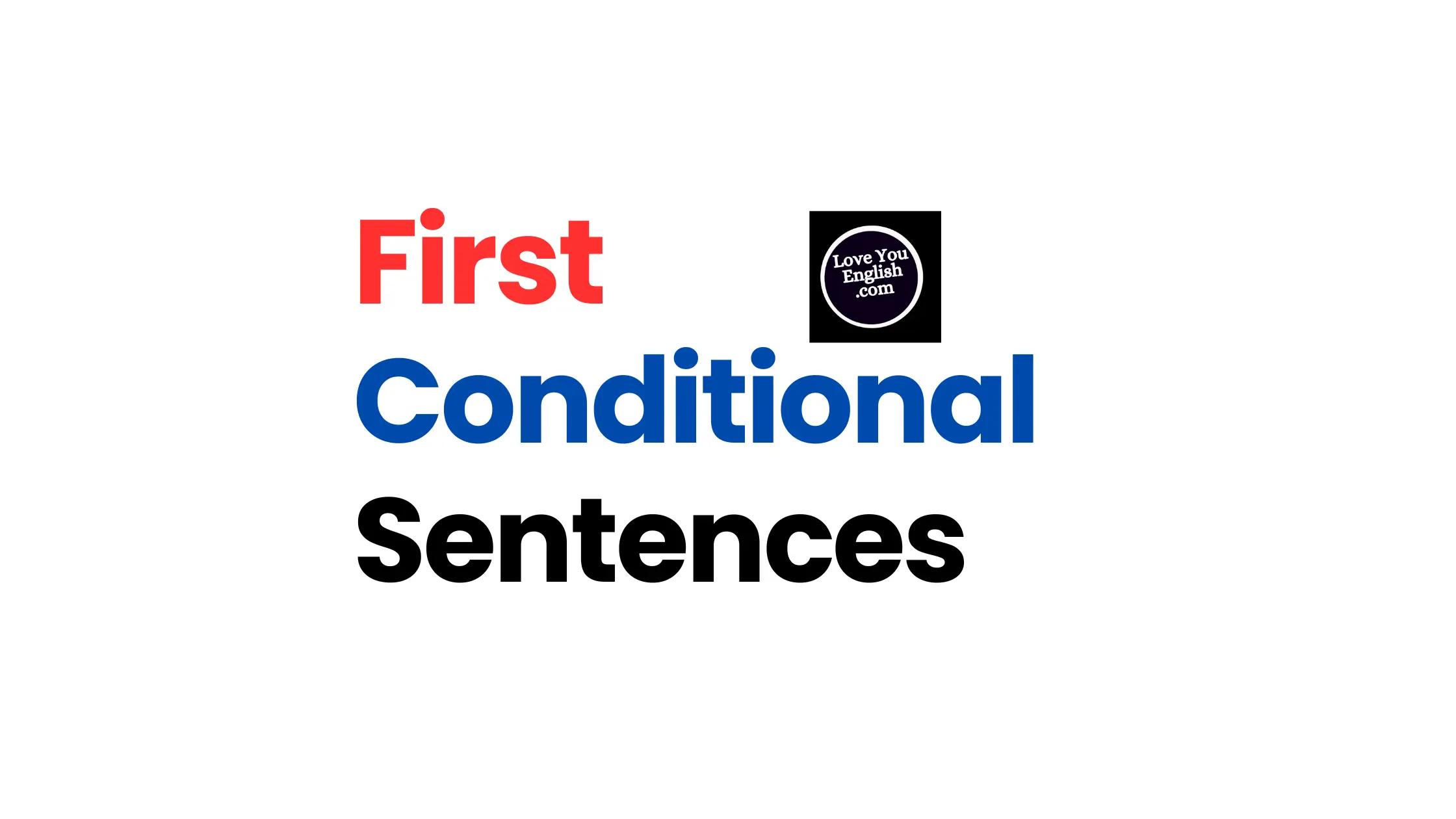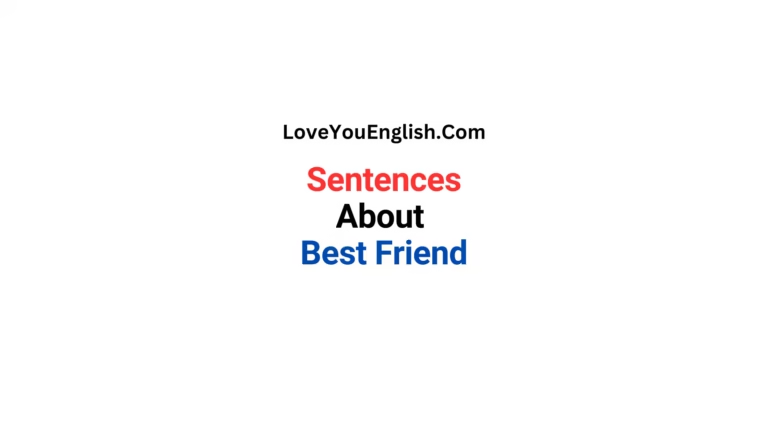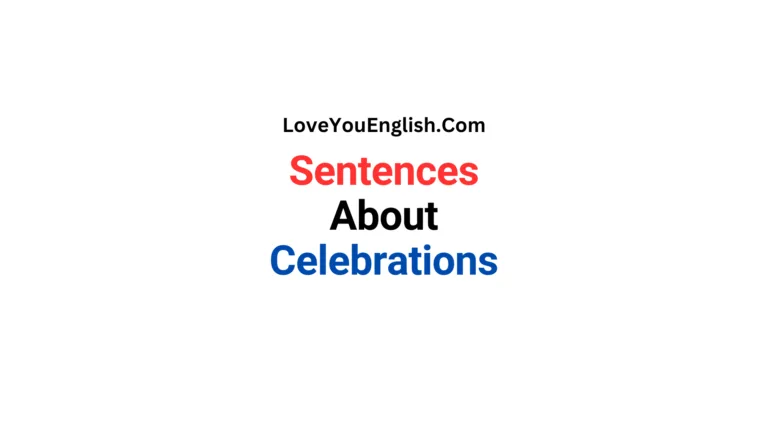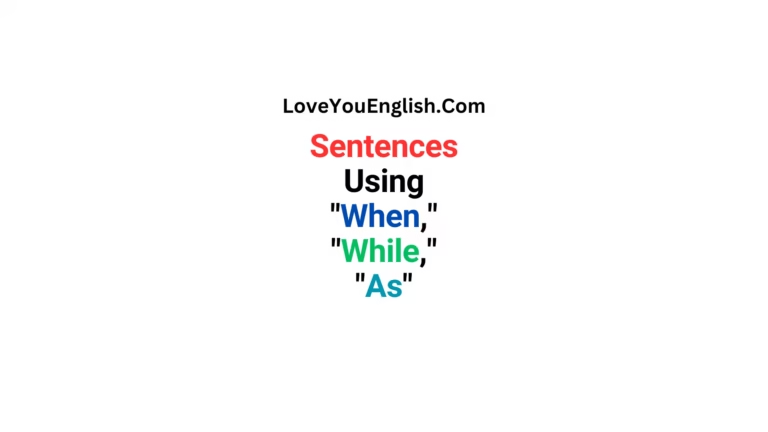100 First Conditional Sentences in English
The first conditional is used in English to talk about real and possible future situations and their results.
It helps learners explain what will happen if a certain condition is met. Learning first conditional sentences makes it easier to talk about plans, warnings, promises, and everyday situations.
This blog post, “100 First Conditional Sentences in English,” is specially created for students, beginners, and ESL learners.
In this post, you will find easy and practical examples of first conditional sentences used in daily life.
These sentences will help you understand the structure and use it correctly in speaking and writing.
This post is helpful for:
-
English beginners and ESL learners
-
Kids, school, and college students
-
Working professionals
-
English teachers and future teachers
General Situations
-
If you study hard, you will pass the exam.
-
If it rains tomorrow, we will stay at home.
-
If you overeat, you will feel sick.
-
If you don’t hurry, you will miss the bus.
-
If you drink coffee at night, you won’t sleep well.
-
If she works late, she will be tired the next day.
-
If they invite us, we will go to the party.
-
If you don’t wear a jacket, you will feel cold.
-
If we leave now, we will reach on time.
-
If he doesn’t apologize, she will be upset.
Work and Career
-
If you work hard, you will get a promotion.
-
If he arrives early, he will prepare for the meeting.
-
If you submit your report late, the boss will be angry.
-
If we finish the project today, we will get a bonus.
-
If she takes a course, she will improve her skills.
-
If he doesn’t prepare well, he will fail the interview.
-
If they reduce prices, they will attract more customers.
-
If you update your resume, you will get more job offers.
-
If I get a new job, I will move to another city.
-
If she learns coding, she will get a better salary.
Health and Fitness
-
If you exercise regularly, you will stay fit.
-
If she eats junk food, she will gain weight.
-
If you don’t drink enough water, you will feel dehydrated.
-
If he smokes too much, he will have lung problems.
-
If you wake up early, you will feel fresh.
-
If you don’t sleep well, you will feel tired.
-
If he goes to the gym, he will build muscles.
-
If we eat more vegetables, we will be healthier.
-
If she runs every day, she will lose weight.
-
If you take vitamins, you will boost your immunity.
Relationships and Social Life
-
If you are kind, people will like you.
-
If she calls me, I will answer.
-
If they argue too much, they will break up.
-
If he forgets her birthday, she will be sad.
-
If you help others, they will respect you.
-
If we go to the party, we will meet new friends.
-
If he apologizes, she will forgive him.
-
If you smile, people will smile back.
-
If she doesn’t text him back, he will feel ignored.
-
If we don’t invite them, they will feel hurt.
Travel and Transportation
-
If we book the tickets early, we will get a discount.
-
If you don’t check the map, you will get lost.
-
If it snows, our flight will be delayed.
-
If you take the wrong bus, you will be late.
-
If we leave now, we will avoid traffic.
-
If you don’t fasten your seatbelt, you will get a fine.
-
If he drives too fast, he will have an accident.
-
If we take a taxi, we will reach faster.
-
If you forget your passport, you won’t be able to travel.
-
If she misses the train, she will take the next one.
Technology and Gadgets
-
If you charge your phone, it will last longer.
-
If he forgets his laptop, he won’t finish his work.
-
If we upgrade our internet, the speed will improve.
-
If she downloads the app, she will learn new words.
-
If you don’t save your work, you will lose it.
-
If your phone battery dies, you won’t be able to call me.
-
If we use solar power, we will save energy.
-
If he buys a new laptop, he will work faster.
-
If she forgets the password, she won’t access her account.
-
If you don’t update the software, it won’t work properly.
Weather and Nature
-
If the sun shines, we will go to the beach.
-
If it storms, we will stay inside.
-
If the river overflows, the village will be flooded.
-
If it’s windy, the kite will fly high.
-
If it rains heavily, the roads will be blocked.
-
If we don’t water the plants, they will dry up.
-
If the snow melts, the roads will be slippery.
-
If the temperature rises, the ice will melt.
-
If the wind is strong, the power lines will fall.
-
If we take care of nature, we will have a better future.
Money and Shopping
-
If you save money, you will buy a new car.
-
If she spends too much, she will be broke.
-
If we shop online, we will get discounts.
-
If he invests wisely, he will become rich.
-
If you don’t compare prices, you will waste money.
-
If she finds a sale, she will buy more clothes.
-
If we use coupons, we will save money.
-
If you forget your wallet, you won’t be able to pay.
-
If he wins the lottery, he will buy a mansion.
-
If they raise the prices, fewer people will buy.
Education and Learning
-
If students pay attention, they will learn more.
-
If he doesn’t do his homework, he will get in trouble.
-
If we read daily, we will improve our vocabulary.
-
If she joins the class, she will become fluent.
-
If they don’t practice, they will forget the lessons.
-
If he studies, he will pass the test.
-
If you don’t ask questions, you won’t understand.
-
If we visit the library, we will find useful books.
-
If she memorizes the formulas, she will solve the problems easily.
-
If he listens carefully, he will understand better.
Miscellaneous
-
If you don’t knock, they won’t open the door.
-
If the baby cries, we will comfort him.
-
If he tells a joke, everyone will laugh.
-
If she cooks dinner, we will eat together.
-
If we clean the house, it will look beautiful.
-
If the alarm rings, I will wake up.
-
If you don’t return the book, you will pay a fine.
-
If we plant more trees, the air will be cleaner.
-
If they don’t turn off the lights, the bill will be high.
-
If she waters the flowers, they will bloom.






